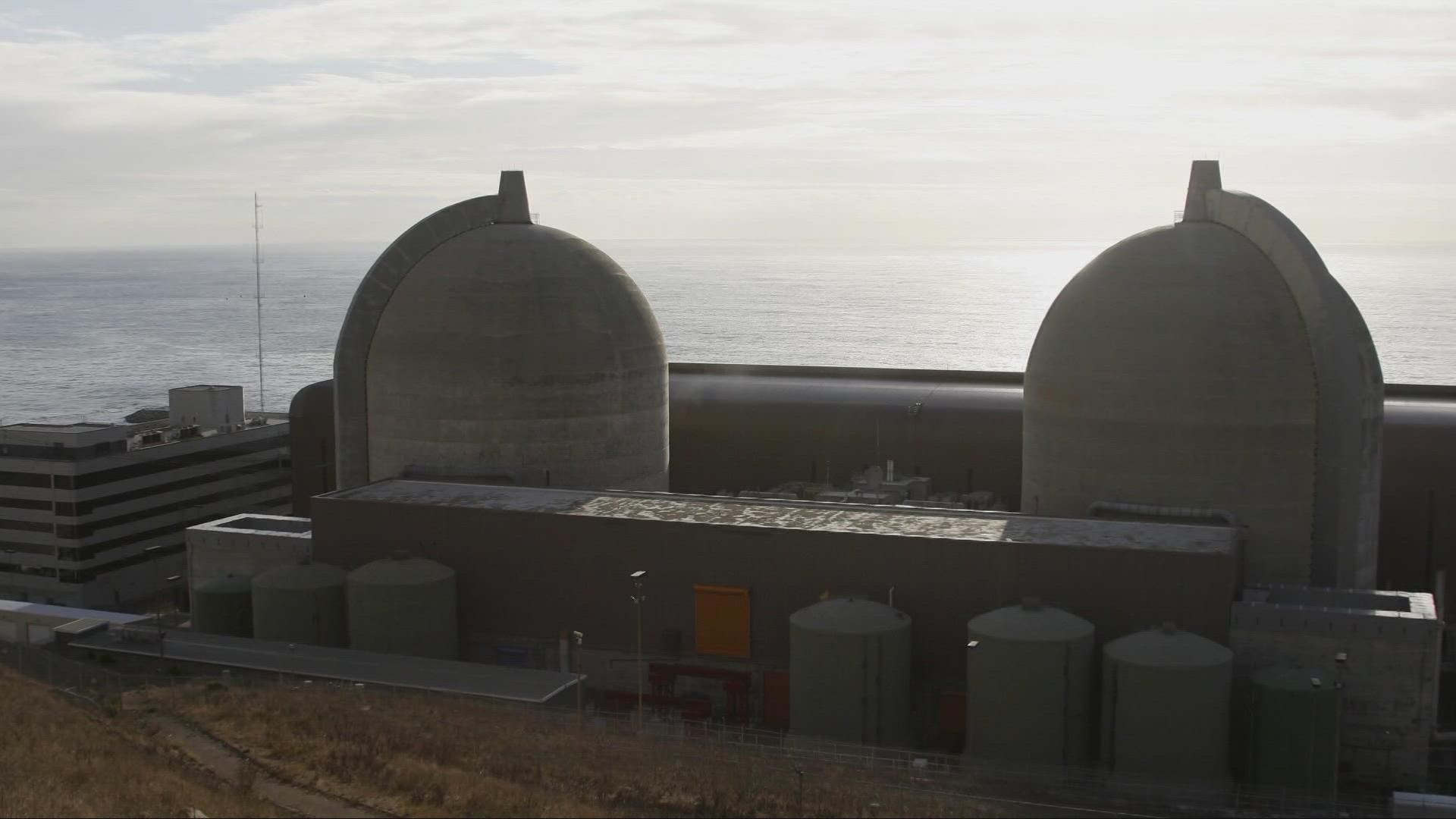SACRAMENTO, Calif. — In a state that largely supports climate policy, lawmakers passed and the governor signed legislation extending the life of the state’s last remaining nuclear plant.
The argument: Someone has to keep the lights on.
In the final hours of the legislative session last week, extending the life of the Diablo Canyon Nuclear Power Plant took center stage.
"There are few times where you feel more frustrated as an elected official than when you’re getting a call saying the lights may be going out," said Assemblymember Chris Holden as he spoke in favor of the bill.
Extending the life of the Canyon was part of a larger package of environmental bills the governor introduced at the end of the legislative session.
"What you saw in the last few days of session was really Gavin Newsom using his political muscle and being aided by the fact that with our record setting heatwave, there's this concern about blackouts this week and going forward," UC San Diego Political Science Dean Thad Kousser said, "and he was able to convince Californians in the legislature by a fairly large margin to back his plan because it gave him the best chance of keeping the lights on."
Kousser said California politicians found themselves in a hard place. The canyon supplies nearly 10% of the state’s power.
“You don't notice and thank government when you plug in your light and it goes on, but when you plug in your light and it doesn't go on, you blame government," Kousser said. "That was never more clear than with Gray Davis, whose recall really came down to the rolling blackouts across the state and the high prices of energy that that happened under his administration.”
The governor signed the bill Friday evening. The life of the Diablo Canyon could now extend to 2030. There is, however, one more deadline in the way.
"The application to get the federal funds to be able to do the loan for the deferred maintenance and upgrades to keep the plant running is Sept. 6," Assemblymember Jordan Cunningham explained.
The Canyon was part of a larger package of environmental bills the governor introduced at the end of the legislative session.
"The governor rarely gets everything he wants, but the governor is the number one political figure in California," Political Analyst Steve Swatt said.
Some of the other environmental bills included making it law that California has to be carbon neutral by 2045, and there must be buffer zones between any new oil wells and communities.
WATCH MORE: Gov. Newsom signs pro fast food worker bill



















